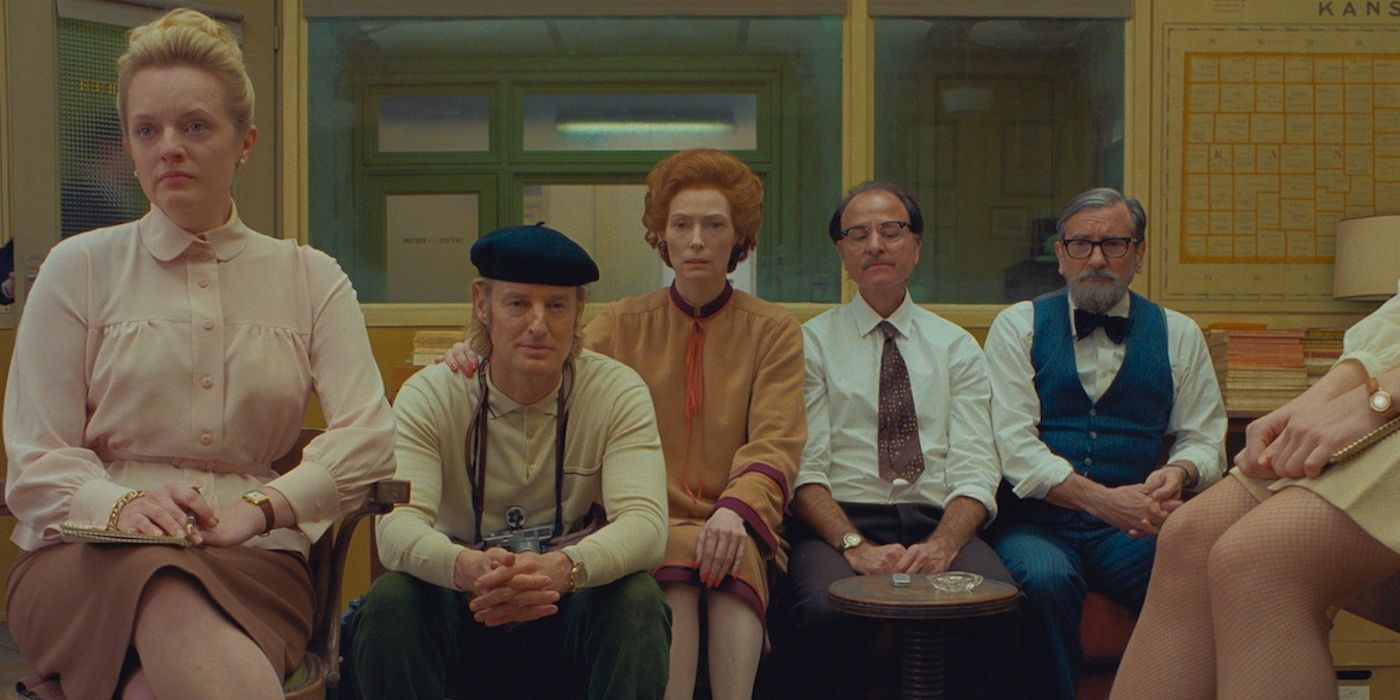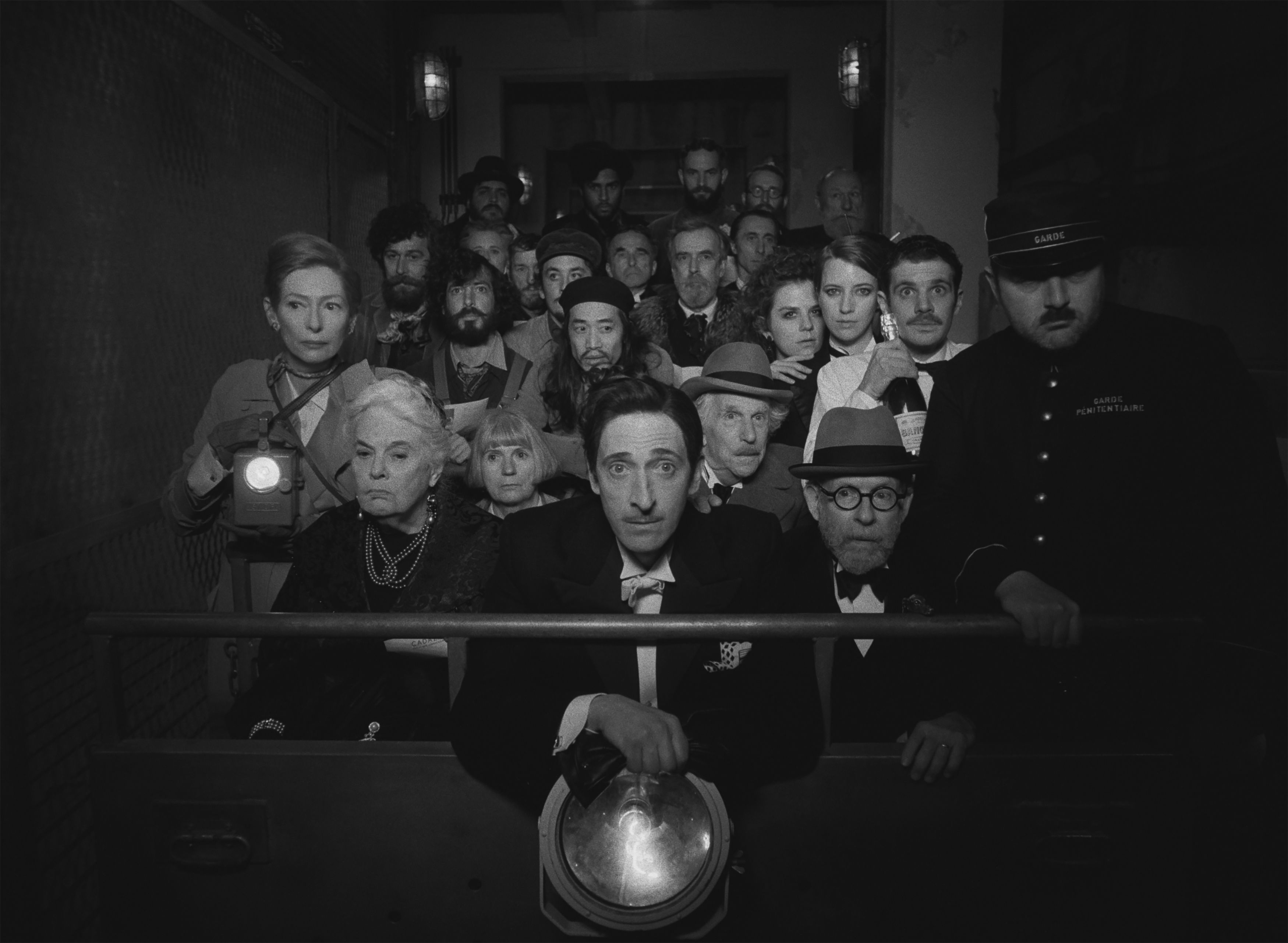There is no denying that Wes Anderson is one of the most easily recognizable directors working today, to the point where his spoofs can be recognized even by casual moviegoers. For his The French Dispatch, Anderson looks to the printing press with nostalgia goggles on, specifically for magazines like The New Yorker, to create his most iconic and Wes Anderson-like movie to date.
The story is presented with an anthology format, with the runtime divided into "an obituary, a travel guide and three feature articles," with no common thread joining the stories other than the fact that they are articles narrated by different writers. The result feels like watching a visual representation of a magazine, with each article having a distinct style and personality that corresponds to that of its writer/narrator, each of them being close enough to the cast that they become characters in them — to the point of calling the idea of journalistic neutrality absolute nonsense.
Because of the anthology-like format and the runtime restrictions on each segment, The French Dispatch feels a bit emotionally distant compared to some of Anderson's other movies. Out of the five segments, the travel guide, in which Owen Wilson explains the history of the fictional town where the magazine's offices are, is completely forgettable, yet Anderson isn't as interested in emotions depth or thematic resonance as he is interested in letting big personalities make big and lasting impressions on the audience. Take for instance Benicio del Toro as a genius artist who is also imprisoned for a double homicide, or Timothée Chalamet as a walking, talking meme about teenagers acting like revolutionaries without a clue of how many appendixes to add to a manifesto. We get the briefest of insights into what makes them tick and what their motivations are, but their segments are much more concerned with what they do in the short time we meet them than in what came before, leaving you with a desire to know more.
Of course, a big part of why this works is that Anderson gathered a top-notch group of actors for his latest film, both in the insane number of A-list cameos — everyone from Saoirse Ronan to Christoph Waltz is in the film, even if they only have two lines of dialogue. Chalamet does a great job playing a more self-aware character than we're used to seeing from him, and his relationship to Frances McDormand's Lucinda Krementz, who starts writing about Chalamet's revolution and ends up sleeping with him is delightful to see play out. That being said, the standout performance comes from Jeffrey Wright as a James Baldwin-like writer who simply cannot spend more than 5 minutes telling a story without going into weird and long tangents.
Even if The French Dispatch doesn't have the depth of other Anderson movies, it's because the director wants to re-establish himself as one of the most aesthetically distinct filmmakers today by throwing every single Wes Anderson-ism at the screen to the point where it's almost a sensory overload. The film includes everything from your changing aspect ratios, to the symmetrical framing, to going from full-color to black-and-white on a whim, to extensive use of miniatures, to a phenomenal and totally out of left field animated sequence straight out of an Adventures of Tintin comic strip. All this may get a bit overwhelming, as Anderson seems to cram about 20 different movies into a two-hour runtime, and multiple viewings are definitely encouraged to even try and grasp half of what Anderson is trying to do. Except it all works because of the sense of love and care Anderson and his team pour into every frame, including Alexandre Desplat, who provides one of his best scores in years.
If you're not a fan of Anderson's visual style, this movie will not convince you otherwise. In the end, The French Dispatch is a near-perfect encapsulation of Anderson's filmography and perhaps the best film to show to newcomers. If it wasn't for the fact that the beginning of the movie makes it very clear the fake magazine ended by the time the story began, I'd be running to the kiosk to buy the next issue.
Rating: A-



